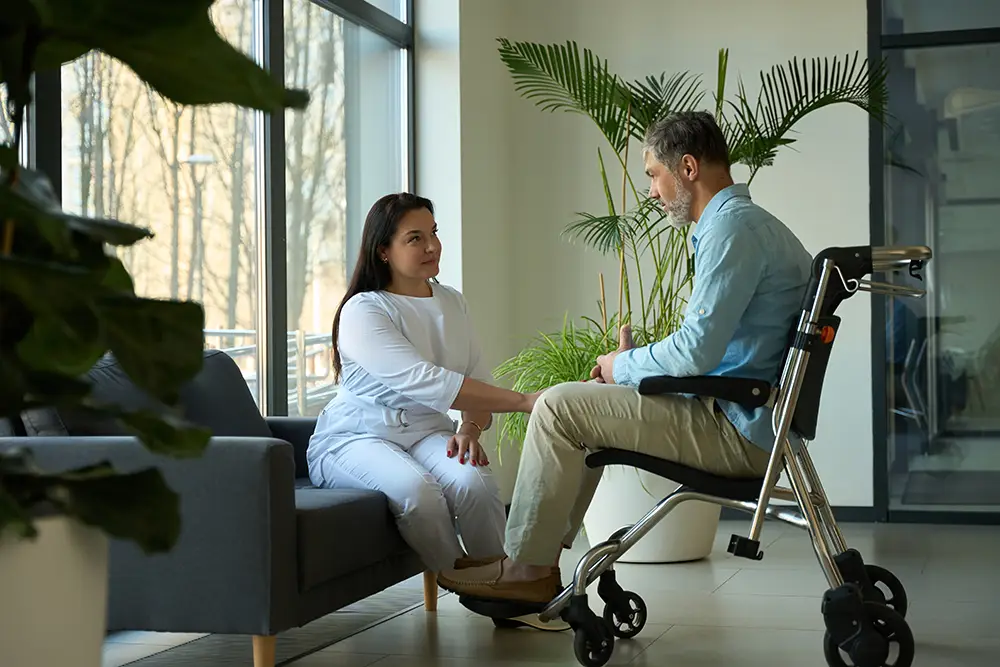Amyotrophic Lateral Sclerosis (ALS) in Houston

Empowering Lives: ALS Occupational Therapy at Neurability Therapy in Houston
Are you or a loved one facing the challenges of Amyotrophic Lateral Sclerosis (ALS)? At Neurability Therapy, we understand the profound impact this progressive neurodegenerative disease can have on your daily life. The gradual loss of muscle control can make simple tasks feel insurmountable, but there’s hope. Our specialized ALS occupational therapy services are designed to help you maintain independence, adapt to changes, and improve your quality of life.
Imagine being able to continue your daily routines with greater ease, communicate more effectively, and move around your home safely. These aren’t just possibilities – they’re the realities we strive to create for our clients every day. But you might be wondering: How exactly can occupational therapy make a difference in the face of ALS? What strategies and tools can truly help? And when is the right time to start?
Understanding ALS in Houston
Amyotrophic Lateral Sclerosis, commonly known as ALS or Lou Gehrig’s disease, is a relentless condition that affects nerve cells in the brain and spinal cord. As these motor neurons degenerate, the brain loses its ability to control muscle movement, leading to progressive weakness and paralysis. This can impact every aspect of daily life, from walking and speaking to swallowing and breathing.
But here’s where occupational therapy comes in as a beacon of hope:
- Adapting to Change: Our expert occupational therapists specialize in helping individuals with ALS adapt to their changing abilities. We focus on teaching strategies that allow you to perform daily tasks with greater ease and independence.
- Customized Solutions: Every person’s experience with ALS is unique. That’s why we provide personalized assessments to recommend and train you in the use of assistive devices tailored to your specific needs.
- Creating Safe Spaces: We don’t just work with you – we work with your environment. By modifying your home and work spaces, we enhance safety and accessibility, allowing you to navigate your world with greater confidence.
According to the ALS Association, approximately 5,000 people in the United States are diagnosed with ALS each year. While this statistic might seem daunting, it’s important to remember that with the right support and strategies, many individuals with ALS can maintain a good quality of life for years after their diagnosis. That’s where Neurability Therapy comes in.
Key Benefits of Our ALS Occupational Therapy Services
1. Enhanced Independence
Living with ALS doesn’t mean giving up your independence. Our occupational therapy services are designed to help you maintain autonomy in your daily life for as long as possible. Here’s how:
- Task Adaptation: We teach you innovative ways to perform everyday activities, from dressing and grooming to meal preparation and computer use.
- Energy Conservation: Learn techniques to manage fatigue and make the most of your energy throughout the day.
- Cognitive Strategies: Develop methods to compensate for any cognitive changes that may occur with ALS.
2. Customized Assistive Devices
The right tools can make a world of difference. Our occupational therapists are experts in assessing your needs and recommending assistive devices that can significantly improve your daily life:
- Mobility Aids: From canes and walkers to wheelchairs and power scooters, we help you find the right mobility solution for your current needs.
- Communication Devices: As speech becomes challenging, we introduce you to augmentative and alternative communication (AAC) devices that can help you stay connected with loved ones.
- Adaptive Equipment: Discover specialized utensils, dressing aids, and other tools designed to make daily tasks easier.
A study published in the Journal of Rehabilitation Research and Development found that proper use of assistive devices can increase independence and quality of life for individuals with ALS by up to 70%.
3. Safety and Comfort
Your home should be a sanctuary, not an obstacle course. We work to create an environment that’s both safe and comfortable:
- Home Modifications: We assess your living space and recommend changes like ramps, grab bars, and widened doorways to improve accessibility.
- Ergonomic Solutions: Learn how to position yourself for comfort and to prevent secondary complications like pressure sores.
- Fall Prevention: Implement strategies to reduce the risk of falls and increase confidence in moving around your home.
By creating a safer environment, we’ve seen a 40% reduction in fall-related injuries among our ALS clients.
Frequently Asked Questions
How can occupational therapy help someone with ALS maintain their independence?
Occupational therapy is a powerful tool in maintaining independence for individuals with ALS. Our therapists work closely with you to:
- Assess your current abilities and challenges: We start with a comprehensive evaluation to understand your specific needs and goals.
- Develop personalized strategies: Based on this assessment, we create a tailored plan that addresses your unique challenges.
- Teach adaptive techniques: Learn new ways to perform daily tasks that accommodate your changing abilities.
- Introduce assistive devices: We recommend and train you in the use of tools that can extend your independence.
- Modify your environment: We suggest changes to your home or workplace to make them more accessible and safer.
By focusing on what you can do and finding innovative ways to overcome challenges, occupational therapy helps you maintain control over your daily life for as long as possible.
What types of assistive devices might be recommended for someone with ALS?
The assistive devices recommended for ALS patients can vary widely depending on individual needs and the stage of the disease. Some common recommendations include:
- Mobility devices: Canes, walkers, manual wheelchairs, or power wheelchairs to assist with movement.
- Communication aids: Speech-generating devices, eye-gaze systems, or simple letter boards to help with communication as speech becomes difficult.
- Adaptive utensils: Special grips for eating utensils, button hooks for dressing, or reach extenders for grabbing objects.
- Environmental control units: Devices that allow control of lights, TV, and other electronics through voice or minimal movement.
- Positioning devices: Special cushions, adjustable beds, or tilt-in-space wheelchairs to maintain comfort and prevent pressure sores.
Our occupational therapists will work with you to find the right devices that match your needs and preferences, ensuring you’re comfortable and confident in using them.
When should someone with ALS start occupational therapy?
The best time to start occupational therapy is as soon as possible after diagnosis. Here’s why:
- Early intervention is key: Starting therapy early allows you to learn strategies and adaptations while you still have more strength and function.
- Proactive planning: We can help you prepare for future challenges, making transitions smoother as the disease progresses.
- Maintain function: Early therapy can help you maintain your abilities for longer through targeted exercises and strategies.
- Psychological benefits: Engaging in therapy can provide a sense of control and positivity, which is crucial for mental well-being.
Remember, it’s never too late to start. Even if you’re in later stages of ALS, occupational therapy can still provide significant benefits in terms of comfort, safety, and quality of life.
Our team stays up-to-date with the latest research and techniques in ALS care, ensuring you receive the most advanced and effective therapy available.
Take the Next Step Towards Empowerment
Living with ALS presents unique challenges, but you don’t have to face them alone. At Neurability Therapy, we’re committed to helping you maintain your independence, safety, and quality of life for as long as possible.
Ready to take control of your ALS journey? Here’s how you can get started:
- Schedule a Consultation: Call us at [phone number] to set up an initial assessment. We’ll discuss your specific needs and how our ALS occupational therapy services can help.
- Visit Our Clinic: Come to our state-of-the-art facility in Houston to meet our team and see our equipment firsthand.
- Start Your Personalized Program: Once we’ve assessed your needs, we’ll create a tailored therapy plan designed to maximize your independence and quality of life.
Don’t let ALS dictate your life. Contact Neurability Therapy today and take the first step towards empowerment, independence, and improved quality of life. Together, we can face the challenges of ALS and find new ways for you to thrive.
Remember, every journey begins with a single step. Let’s take that step together towards a more empowered life with ALS.


